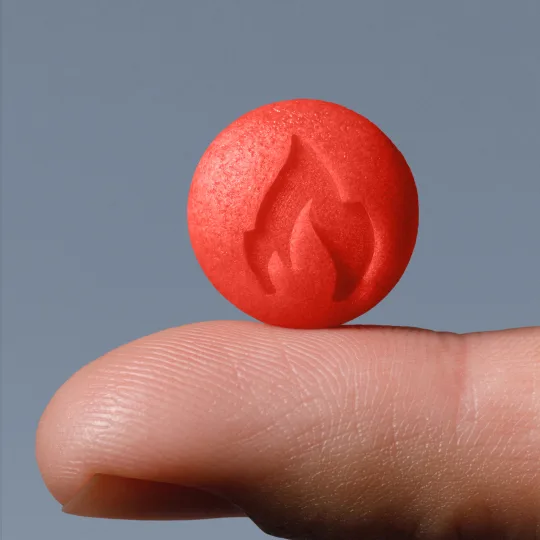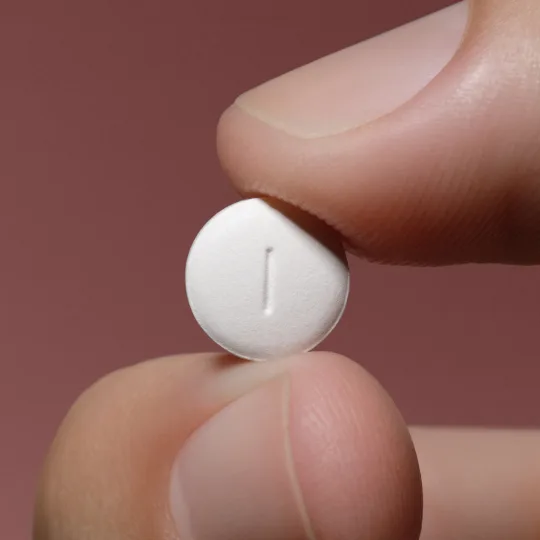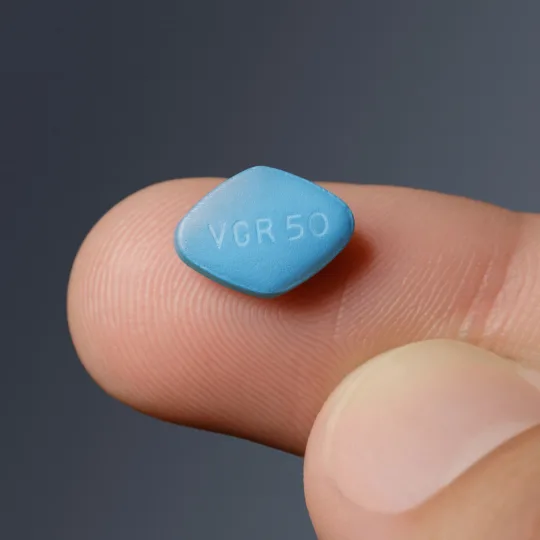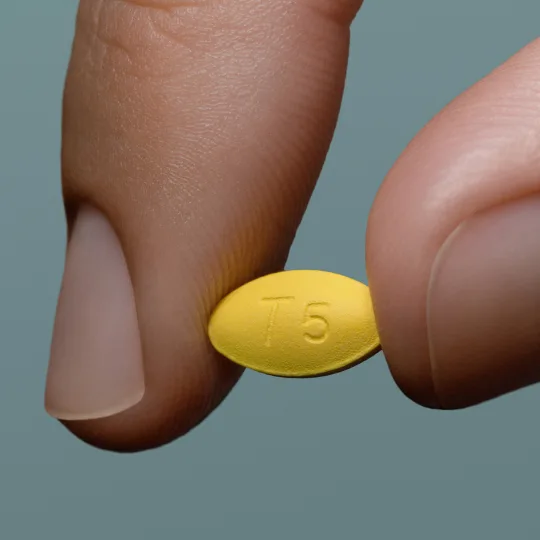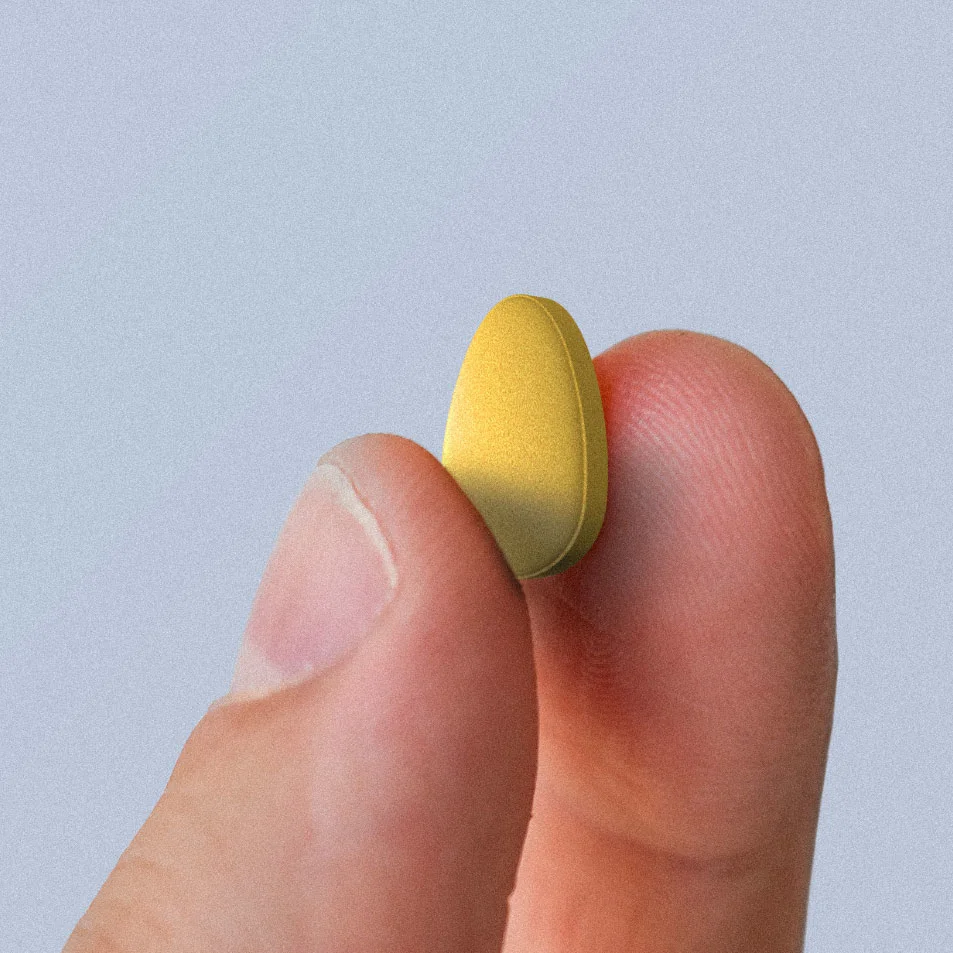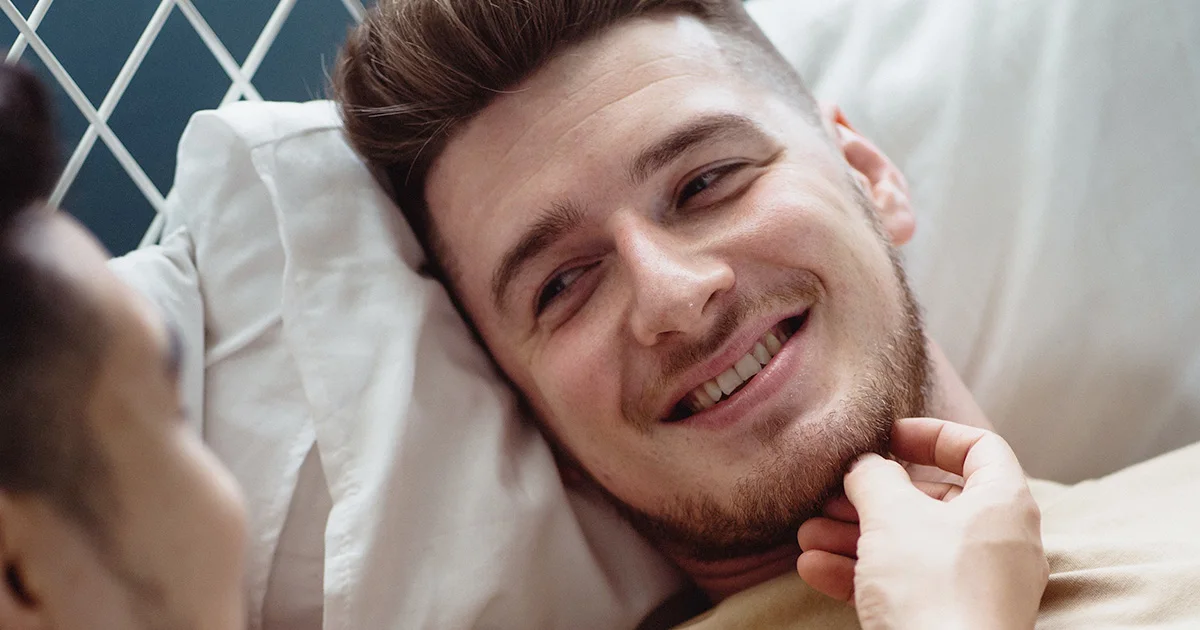Key takeaways
Viagra (sildenafil) is a medication that treats erectile dysfunction (ED). It’s typically effective in the body for about four hours. Its peak effects usually occur within 60 minutes of taking it.
How long Viagra lasts can vary based on individual factors, including other medications you take, when you last ate, and other health conditions you may have.
Viagra only works if you’re sexually aroused, and it shouldn’t be taken more than once in a 24-hour period.
If you’re looking for longer-lasting or more flexible treatment alternatives for ED, Daily Rise Gummies (which contain tadalafil) and Ro Sparks (which contain both sildenafil and tadalafil) are possible options.
Here's what we'll cover
Key takeaways
Viagra (sildenafil) is a medication that treats erectile dysfunction (ED). It’s typically effective in the body for about four hours. Its peak effects usually occur within 60 minutes of taking it.
How long Viagra lasts can vary based on individual factors, including other medications you take, when you last ate, and other health conditions you may have.
Viagra only works if you’re sexually aroused, and it shouldn’t be taken more than once in a 24-hour period.
If you’re looking for longer-lasting or more flexible treatment alternatives for ED, Daily Rise Gummies (which contain tadalafil) and Ro Sparks (which contain both sildenafil and tadalafil) are possible options.
Viagra (sildenafil) is a medication that treats erectile dysfunction (ED). For most people, it works for about four hours after taking a dose. But exactly how long Viagra lasts for you may depend on several factors, including other medications you take and other health conditions you might have.
If you have questions about how long Viagra lasts and what you can do to make the most of it, read on. We break it all down in this article.
How long does Viagra last?
Viagra (sildenafil) is typically effective for about four hours after you take it. And some small studies have shown that it may be effective for up to 12 hours in some people, though this may not be true for everyone.
Although Viagra is only effective for this amount of time, the medication may remain in your system for up to a day. That said, as time passes, the concentration of Viagra is too low for most people to experience a noticeable effect after the four-hour mark.
How long does it take for Viagra to work?
Most people experience the maximum effects of Viagra about 30–60 minutes after taking it. That’s why it’s generally recommended to take Viagra one hour before having sex for best results. However, taking Viagra anywhere between 30 minutes to four hours before sex can be safe and effective, depending on how your body responds.
Although Viagra works for most people within 30 to 60 minutes, the exact timing may vary from person to person. For example, some small studies found that participants experienced an erection less than 30 minutes after taking Viagra and, in some cases, as early as 12 minutes after taking it. While these quicker-acting time frames aren’t guaranteed, they are possible. This is because several factors can influence how quickly Viagra works. A heavy, high-fat meal (e.g. burgers, fries, or pizza), for example, may slow down absorption and delay how quickly it works.
If you’re taking Viagra as directed but it doesn’t seem to work, reach out to your healthcare provider for further advice. They may recommend a dose adjustment or other treatment options that may work better for you.
How long does Viagra stay in your system?
As mentioned above, Viagra typically remains effective for about four hours. This means you may be able to get an erection within this time frame if you’re sexually stimulated. However, that doesn’t mean you’ll have a continuous erection for hours—just that the drug is still present and can help you get an erection (or even multiple) during that window.
How much Viagra should you take?
A commonly prescribed Viagra dose is 50 mg taken one hour before having sex. But the best dose for you depends on your individual factors, including other medications you take, your age, and other health conditions you have. For example, if you’re over 65 years old or you have kidney or liver disease, your prescriber may recommend a lower dose of 25 mg. They may also recommend a lower dose if you take certain medications that make Viagra side effects, including low blood pressure, more likely.
On the other hand, a higher Viagra dose (up to 100 mg) may be appropriate for people who feel 50 mg isn’t working for them.
It's important to note that higher doses of Viagra are not expected to have longer-lasting effects compared to lower doses. So when comparing Viagra 100 mg to 50 mg, they’re both expected to remain active in the body for about four hours.
Regardless of your dose, Viagra should only be taken once per day. Taking more than one dose within 24 hours can increase the risk of side effects.
Viagra is available as a tablet, and generic sildenafil is available as a tablet and oral liquid. Other formulations may also be available from specialized pharmacies such as sublingual (under-the-tongue) or chewable options. While these formulations may not specifically be FDA-approved, they contain an FDA-approved active ingredient.
6 factors that influence how long Viagra lasts
Viagra can be quite an effective medication. But you may notice that it starts working more quickly (or more slowly) than what we’ve discussed here. This is because several factors may affect how your body reacts to Viagra. Here, a closer look at these different variables.
1. Mental health
Research shows that people with ED are more likely to have anxiety or depression. And feeling anxious, depressed, or nervous during sex can impact your sexual performance. What’s more, your mental state could even impact how well Viagra works for you.
Practicing mindfulness during sex, such as focusing on breathing during the act, can help improve performance issues. And practicing mindfulness in general can also improve your sex life.
If mental health challenges are impacting your daily life, consider making an appointment with a mental health provider. They can offer suggestions and treatment options to improve your symptoms. As a bonus, your sex life may improve too.
2. Diet
Some research shows that eating high-fat meals, including foods with large amounts of butter, cream, or cheese, can delay how quickly your body absorbs Viagra. However, other research shows only a minimal effect of food on Viagra absorption. This doesn’t mean you have to take Viagra on an empty stomach. However, it may be helpful to avoid high-fat foods right before popping the pill. If you are noticing decreased effects of Viagra after eating, talk to your prescriber, as they may have other suggestions to boost efficacy, such as being more careful with meal timing.
Regardless of whether food impacts Viagra absorption for you, your diet is likely to have an effect on ED symptoms. A diet full of fresh fruits and vegetables, legumes, and whole grains can improve symptoms (and even help prevent ED from occurring in the first place).
3. Exercise
Regular physical activity benefits overall circulation, which plays a key role in getting and maintaining erections. And research suggests that people who work out regularly (about three hours each week) are more likely to see improvements in ED symptoms than those who don’t exercise.
If you’re looking to develop an exercise routine, the Centers for Disease Control and Prevention (CDC) recommendations for physical activity are a good place to start for any adult, especially those with ED or other conditions like type 2 diabetes. The CDC suggests getting at least 150 minutes of moderate-intensity activity (e.g. brisk walking, riding a bike on flat ground) or 75 minutes of vigorous-intensity exercise (e.g. running) per week. You should also aim to do muscle-strengthening workouts at least twice a week, making sure to hit all your major muscle groups by, say, lifting weights, doing push-ups, or practicing yoga.
If you have any health conditions that may limit your exercise regimen, be sure to have a discussion with your provider before making a change to your exercise routine.
4. Age
As you age, your metabolism slows down. You’re also more likely to have multiple health conditions. Both these factors can affect how long Viagra lasts and how quickly it works.
Still, studies have proven that Viagra can be safe and effective for many older adults, so age doesn’t have to stand between you and a satisfying sex life. If you’re over 65 years old, your prescriber may start you at a lower dose (25 mg) of Viagra. Depending on how your body responds, they may increase your dose over time.
5. Drug interactions
Certain medications may interact with Viagra, leading to increased or decreased levels of Viagra in the body. This happens because these medications affect the way the body processes medications overall.
For example, ritonavir (Norvir)—typically prescribed for HIV treatment—and clarithromycin—typically used for bacterial infections—can increase levels of Viagra in the body. Higher levels can cause Viagra to stick around in the body longer and increase the risk of side effects.
Other medications, such as carbamazepine (Tegretol, Carbatrol)—commonly used for seizure control—and the herbal supplement St. John’s wort can decrease the amount of sildenafil in the body. Lower Viagra levels can make the ED drug less effective.
If you take any medications (over-the-counter and prescription) besides Viagra, be sure to inform your healthcare provider. They can check for drug interactions and recommend changes to your medication regimen if needed.
6. Other health conditions
Your overall health also plays a role in how long Viagra lasts and how well it works. Several health conditions, such as diabetes, high blood pressure, and high cholesterol, can reduce blood flow. This may make it harder for Viagra to do its job, though studies have shown it may still be effective in people with these conditions.
Additionally, if your liver or kidneys aren’t working as expected, Viagra may last longer in the body, increasing your risk of side effects. Reason being, both organs help break down and clear medications (such as Viagra) from your system. So, if their function is impaired, such as due to liver disease or chronic kidney disease, the drug can build up in your body and stick around longer than desired.
How do you get the most out of Viagra?
Taking Viagra at the right time is the most important way to get the most out of your dose. As mentioned, you should take Viagra about one hour before sex for the best effect.
You can take Viagra with or without food, but know that fatty foods decrease drug absorption and increase how long sildenafil takes to start working, meaning taking sildenafil alongside lower-fat meals may allow it to work faster.
If your medication doesn’t seem to work after 30 minutes to one hour, don’t take more of the drug. Higher doses can increase your risk of side effects. No matter how much you might want to get the most out of Viagra, you should never take more than the dose prescribed without first consulting your prescriber—period.
Viagra isn’t available over the counter (OTC). If someone is claiming to sell Viagra without a prescription, something is not right. It’s a prescription drug, so you need an Rx in order to try it. The first step to making that happen? Seeing a healthcare provider in person or virtually, such as through Ro. During this consultation, the provider will likely review your medical history and current medication regimen and ask questions about your symptoms; if in person, they might also perform a physical exam. All of this is to help them determine whether Viagra may be the right treatment for you.
Once you try it, pay attention to how it works for you. If the effects aren’t lasting as long as expected, or if you’re not experiencing desired results, check back in with your provider. They may recommend adjusting your dosage, switching medications, or exploring other treatments.
How does Viagra work?
Viagra is part of a group of medications called phosphodiesterase type 5 (PDE5) inhibitors. PDE5 inhibitors help improve blood flow to the penis, making it easier to get and maintain an erection when you're sexually aroused. They work by blocking an enzyme called PDE5, which is normally responsible for breaking down chemicals that help you get and maintain an erection. By inhibiting PDE5, Viagra makes it so you’re able to keep an erection more easily.
Remember that Viagra doesn’t cause an erection on its own. It simply enhances the natural process that happens when you’re aroused.
Viagra side effects and drug interactions
Like any prescription medication, taking Viagra can come with side effects. While most are mild and temporary, knowing what to expect will help keep you safe.
Common side effects
Most Viagra side effects are mild and resolve within a few hours. These include:
Headaches
Facial flushing (warmth or redness in your face)
Upset stomach or indigestion
Stuffy or runny nose
Back pain
Muscle aches
Dizziness
Light sensitivity
Rash
Slightly lowered blood pressure
Most side effects listed here are more likely to occur if you take higher Viagra doses (100 mg) than with lower doses (25 mg, 50 mg). If you experience any symptoms that are bothersome or don’t improve over time, reach out to your prescriber. They can discuss your options, which may include decreasing your dose.
Rare side effects
While rare, some Viagra risks require urgent medical care. You should stop taking Viagra and seek immediate medical attention if you experience:
A painful erection lasting longer than 4 hours (priapism), which can cause permanent damage to the penis if not treated immediately
Sudden vision changes, including vision loss in one or both eyes
Sudden hearing changes, such as hearing loss with ringing in the ears or dizziness
Chest pain, dizziness, or nausea during sexual activity
Very low blood pressure, which is more likely to occur if you already have low blood pressure or take other medications that decrease blood pressure
Though these side effects sound scary, remember that they are relatively uncommon. Hopefully, by working closely with your healthcare provider and disclosing all of your medications, you can avoid side effects as much as possible.
Drug interactions
Viagra can also interact with medications that lower blood pressure. When combined, a severe drop in blood pressure may occur. For this reason, Viagra typically shouldn’t be taken with nitrates such as nitroglycerin (Nitrostat) and isosorbide mononitrate (Monoket).
While other medications may also drop your blood pressure when combined with Viagra, you don’t always need to avoid the combination. Still, if you take one of the medications below, make sure your healthcare provider knows about it before starting Viagra:
Alpha-blockers such as tamsulosin (Flomax) and doxazosin (Cardura)
Medications that treat high blood pressure, such as lisinopril (Zestril), amlodipine (Norvasc), and hydrochlorothiazide (Microzide),
Remember that this list is not exhaustive. So always discuss your full medical history and current medications with a healthcare provider before starting Viagra.
Viagra alternatives: what are your options?
Viagra isn’t the only oral medication that treats ED. Alternatives may include:
Cialis (tadalafil): Cialis and its generic version, tadalafil, are known for their long-lasting effects—up to 36 hours, to be exact. When taken as needed, the drug can start working in as little as 30 minutes, though it may take up to two hours for some people to feel its full effects. Cialis can also be taken once a day at a low dose, allowing for increased spontaneity and freeing you of the burden of timing your pill taking on some days and not others.
Vardenafil: Compared to Viagra, vardenafil may work more quickly—within 10 minutes for some people, though it may take up to 30 minutes to an hour for others. It may also last slightly longer than sildenafil (about six hours). Vardenafil is only available as a generic (the brand-name drug, Levitra, has been discontinued) and comes as a regular oral tablet or a dissolvable version.
Stendra (avanafil): For some people, Stendra and avanafil can be taken just 15 minutes before having sex. Other folks may find it takes 30 minutes to kick in, which is more similar to Viagra. It lasts about just as long compared to Viagra or sildenafil: about six hours.
Daily Rise Gummies: Each of these fruit-flavored gummies contains 7 mg of tadalafil (the active ingredient in Cialis). They’re intended to be taken once a day, which can allow you to keep a steady stream of the medication in your system and, in turn, be ready for sex whenever the mood strikes.
Ro Sparks: This 2-in-1 treatment combines sildenafil and tadalafil (the active ingredients in Viagra and Cialis, respectively) into a sublingual form that dissolves under your tongue. This formulation allows the medications to reach your bloodstream faster and, in turn, you can be more flexible with planning. On average, Ro Sparks takes about 15 minutes to kick in and lasts up to 36 hours. As a compounded medication, it doesn’t undergo the same US Food and Drug Administration (FDA) review for safety and effectiveness as prescription medications, but it is allowed under federal law to be prescribed by a licensed healthcare provider.
All the medications discussed above require a prescription from a licensed healthcare professional. While Ro Sparks and Daily Rise Gummies aren’t FDA-approved medications, their active ingredients are individually FDA-approved for treating ED.
Other treatment options
If oral ED medications aren’t an option for you, be it because of certain health conditions, personal preference, or another reason, other treatment options may be worth considering. Some of the ones below may be combined with the aforementioned prescription drugs or used on their own:
Vacuum erection devices (“penis pumps”) can help manually strengthen an erection by increasing blood flow to the penis. Talk to your healthcare provider if you’re interested in trying one; they can recommend an FDA-approved device if they deem this treatment option appropriate for you.
Eroxon is a topical gel that’s available OTC to treat ED. It’s applied to the head of the penis and contains a combination of ingredients which can stimulate nerve endings and increase blood flow. Research is more limited on this option than others, but that doesn’t mean it isn’t worth a try—just be sure to discuss with your healthcare provider before giving it a go.
Penile injections can improve circulation and blood flow to the penis. Unlike oral medications and Eroxon, they don’t require sexual arousal first to get an erection.
Penile implants are a surgical treatment option for long-term ED management. These may be an option if other treatments haven’t worked for you.
Lifestyle changes
While medications like Viagra and the above alternatives can be effective for treating ED, addressing underlying lifestyle factors can also play a crucial role in improving erectile function.
Research suggests that certain factors, such as smoking, poor diet, obesity, and lack of physical activity, can contribute to ED. Simply put, these health conditions and habits can decrease blood flow and reduce levels of nitric oxide (a substance that relaxes muscles to improve blood flow). These effects can make it harder to get and maintain an erection.
Adopting healthy habits may improve or even reverse ED in some cases. Some lifestyle changes to support better erectile function include:
Maintaining a healthy weight: Obesity is linked to a higher risk of ED due to its effects on testosterone levels and blood flow. Losing weight through a balanced diet and regular exercise may improve erectile function.
Exercising regularly: Physical activity, especially aerobic exercise, can improve circulation, reduce inflammation, and support heart health, all of which can contribute to better erectile function.
Quitting smoking: Smoking damages blood vessels and reduces blood flow, making it harder to get an erection. Quitting can lead to significant improvements in sexual health.
Eating a heart-healthy diet: A diet rich in fruits, vegetables, whole grains, lean protein, and healthy fats can improve vascular health and support nitric oxide production, both of which are essential for strong erections.
If you're experiencing ED, talking to a healthcare provider about these lifestyle approaches can help you find the best path forward.
Have better sex with Ro
Bottom line
Viagra is typically effective for four hours after you take it, with peak effects occurring around one hour after taking it. That said, how long Viagra lasts for you can vary, as duration depends on several individual factors. Let’s recap:
Viagra tends to be most effective 30–60 minutes after taking it—and the same can be said of its generic version, sildenafil.
Both the brand-name and generic medications only work when you’re aroused, and their effects gradually fade as your body metabolizes the drug—something that usually happens over the course of a day.
Several factors can influence how quickly Viagra works and how long it lasts, including your mental health, exercise routine, diet, other drugs in your medication regimen, and other health conditions.
If Viagra doesn’t last long enough or deliver the desired effects, alternative ED treatments—such as other medications, certain devices, lifestyle changes, or a combination of therapies—may be more suitable. As always, be sure to consult your healthcare provider to discuss further.
DISCLAIMER
If you have any medical questions or concerns, please talk to your healthcare provider. The articles on Health Guide are underpinned by peer-reviewed research and information drawn from medical societies and governmental agencies. However, they are not a substitute for professional medical advice, diagnosis, or treatment.
Viagra Important Safety Information: Read more about serious warnings and safety info.
Cialis Important Safety Information: Read more about serious warnings and safety info.
Consumer Health Care. (n.d.). Eroxon CIL consumer information leaflet. Retrieved from https://www.eroxon.us/content/dam/cf-consumer-healthcare/bp-eroxon/en_US/pages/product-detail/Eroxon-CIL.pdf
DeLay, K. J., Haney, N., & Hellstrom, W. J. (2016). Modifying risk factors in the management of erectile dysfunction: A review. The World Journal of Men's Health, 34(2), 89–100. doi: 10.5534/wjmh.2016.34.2.89. Retrieved from https://pmc.ncbi.nlm.nih.gov/articles/PMC4999494/
Eardley, I., Ellis, P., Boolell, M., et al. (2002). Onset and duration of action of sildenafil for the treatment of erectile dysfunction. British Journal of Clinical Pharmacology, 53(1), 61S–65S. doi: 10.1046/j.0306-5251.2001.00034.x. Retrieved from https://pmc.ncbi.nlm.nih.gov/articles/PMC1874251/
Esposito, K., Giugliano, F., Di Palo, C., et al. (2004). Effect of lifestyle changes on erectile dysfunction in obese men: A randomized controlled trial. The Journal of the American Medical Association, 291(24), 2978–2984. doi:10.1001/jama.291.24.2978. Retrieved from https://jamanetwork.com/journals/jama/fullarticle/198993
Evans, J. D. & Hill, S. R. (2015). A comparison of the available phosphodiesterase-5 inhibitors in the treatment of erectile dysfunction: A focus on avanafil. Patient Preference and Adherence, 9, 1159–1164. doi: 10.2147/PPA.S56002. Retrieved from https://pmc.ncbi.nlm.nih.gov/articles/PMC4542406/
Francesco, M., Harin, P. N., Jacques, B., et al. (2004). Earliest time to onset of action leading to successful intercourse with vardenafil determined in an at‐home setting: A randomized, double‐blind, placebo‐controlled trial. The Journal of Sexual Medicine, 1(2), 168–178. doi: 10.1111/j.1743-6109.2004.04025.x. Retrieved from https://academic.oup.com/jsm/article-abstract/1/2/168/6863004
Garza, A. Z., Park, S. B., & Kocz, R. (2023). Drug Elimination. StatPearls. Retrieved from https://www.ncbi.nlm.nih.gov/books/NBK547662/
Gerbild, H., Larsen, C. M., Graugaard, C., et al. (2018). Physical activity to improve erectile function: A systematic review of intervention studies. Sexual Medicine, 6(2), 75–89. doi: 10.1016/j.esxm.2018.02.001. Retrieved from https://pmc.ncbi.nlm.nih.gov/articles/PMC5960035/
Gingell, C., Sultana, S. R., Wulff, M. B., et al. (2004). Duration of action of sildenafil citrate in men with erectile dysfunction. The Journal of Sexual Medicine, 1(2), 179–184. doi: 10.1111/j.1743-6109.2004.04026.x. Retrieved from https://pubmed.ncbi.nlm.nih.gov/16422972/
Goldstein, I., Tseng, L.-J., Creanga, D., et al. (2016). Efficacy and safety of sildenafil by age in men with erectile dysfunction. The Journal of Sexual Medicine, 13(5), 852–859. doi: 10.1016/j.jsxm.2016.02.166. Retrieved from https://www.sciencedirect.com/science/article/abs/pii/S1743609516003209
Kumar, M., Pathade, A. D., Gupta, S. V., et al. (2022). Efficacy and safety of avanafil as compared with sildenafil in the treatment of erectile dysfunction: A randomized, double-blind, multicenter clinical trial. International Journal of Urology, 29(4), 351–359. doi: 10.1111/iju.14785. Retrieved from https://pmc.ncbi.nlm.nih.gov/articles/PMC9303470/
Leavitt, C. E., Lefkowitz, E. S., & Waterman, E. A. (2019). The role of sexual mindfulness in sexual wellbeing, relational wellbeing, and self-esteem. Journal of Sex & Marital Therapy, 45(6), 497–509. doi: 10.1080/0092623X.2019.1572680. Retrieved from https://pmc.ncbi.nlm.nih.gov/articles/PMC6640099/
Leslie, S. W. & Sooriyamoorthy, T. (2024). Erectile dysfunction. StatPearls. Retrieved from https://www.ncbi.nlm.nih.gov/books/NBK562253/
Montorsi, F., Araujo, A. B., & Tognoni, G. (2004). Erectile dysfunction and cardiovascular risk: A clinical perspective. European Urology, 45(6), 904–912. doi: 10.1016/j.eururo.2004.04.025. Retrieved from https://www.europeanurology.com/article/S0302-2838(04)00236-2/fulltext
Moon, K. H., Park, S. Y., & Kim, Y. W. (2019). Obesity and Erectile Dysfunction: From Bench to Clinical Implication. The World Journal of Men's Health, 37(2), 138–147. doi: 10.5534/wjmh.180026. Retrieved from https://pmc.ncbi.nlm.nih.gov/articles/PMC6479091/
Nichols, D. J., Muirhead, G. J., & Harness, J. A. (2002). Pharmacokinetics of sildenafil after single oral doses in healthy male subjects: Absolute bioavailability, food effects and dose proportionality. British Journal of Clinical Pharmacology, 53(1), 5S–12S. doi: 10.1046/j.0306-5251.2001.00027.x. Retrieved from https://pmc.ncbi.nlm.nih.gov/articles/PMC1874258/
Stuckey, B. G. A., Jadzinsky, M. N., Murphy, L. J., et al. (2003). Sildenafil citrate for treatment of erectile dysfunction in men with type 1 diabetes: Results of a randomized controlled trial. Diabetes Care, 26(2), 279–284. doi: 10.2337/diacare.26.2.279. Retrieved from https://diabetesjournals.org/care/article/26/2/279/23173/Sildenafil-Citrate-for-Treatment-of-Erectile
U.S. Food and Drug Administration (FDA). (2018). Cialis (tadalafil) tablets for oral use. Retrieved from https://www.accessdata.fda.gov/drugsatfda_docs/label/2018/021368s030lbl.pdf
U.S. Food and Drug Administration (FDA). (2025). Sildenafil citrate - sildenafil citrate tablet. Retrieved from https://nctr-crs.fda.gov/fdalabel/services/spl/set-ids/30cb7d6a-ce40-c794-e063-6294a90a6861/spl-doc?hl=sildenafil
U.S. Food and Drug Administration (FDA). (2022). Stendra (avanafil) tablets, for oral use. Retrieved from https://www.accessdata.fda.gov/drugsatfda_docs/label/2022/202276s020lbl.pdf
Valderrama Rodríguez, M. F., Sánchez-Sánchez, L. C., García-Montes, J. M., et al. (2023). A scoping review of the influence of mindfulness on men's sexual activity. International Journal of Environmental Research and Public Health, 20(4), 3739. doi: 10.3390/ijerph20043739. Retrieved from https://pmc.ncbi.nlm.nih.gov/articles/PMC9966447/
World Health Organization (WHO). (2021). Ageing and health. World Health Organization. Retrieved from https://www.who.int/news-room/fact-sheets/detail/ageing-and-health
Xiao, Y., Xie, T., Peng, J., et al. (2023). Factors associated with anxiety and depression in patients with erectile dysfunction: A cross-sectional study. BMC Psychology, 11(1), 36. doi: 10.1186/s40359-023-01074-w. Retrieved from https://pmc.ncbi.nlm.nih.gov/articles/PMC9899110/#Sec2
Zinner, N. (2007). Do food and dose timing affect the efficacy of sildenafil? A randomized placebo-controlled study. Journal of Sexual Medicine, 4(1), 137–144. doi: 10.1111/j.1743-6109.2006.00400.x. Retrieved from https://pubmed.ncbi.nlm.nih.gov/17233779/



